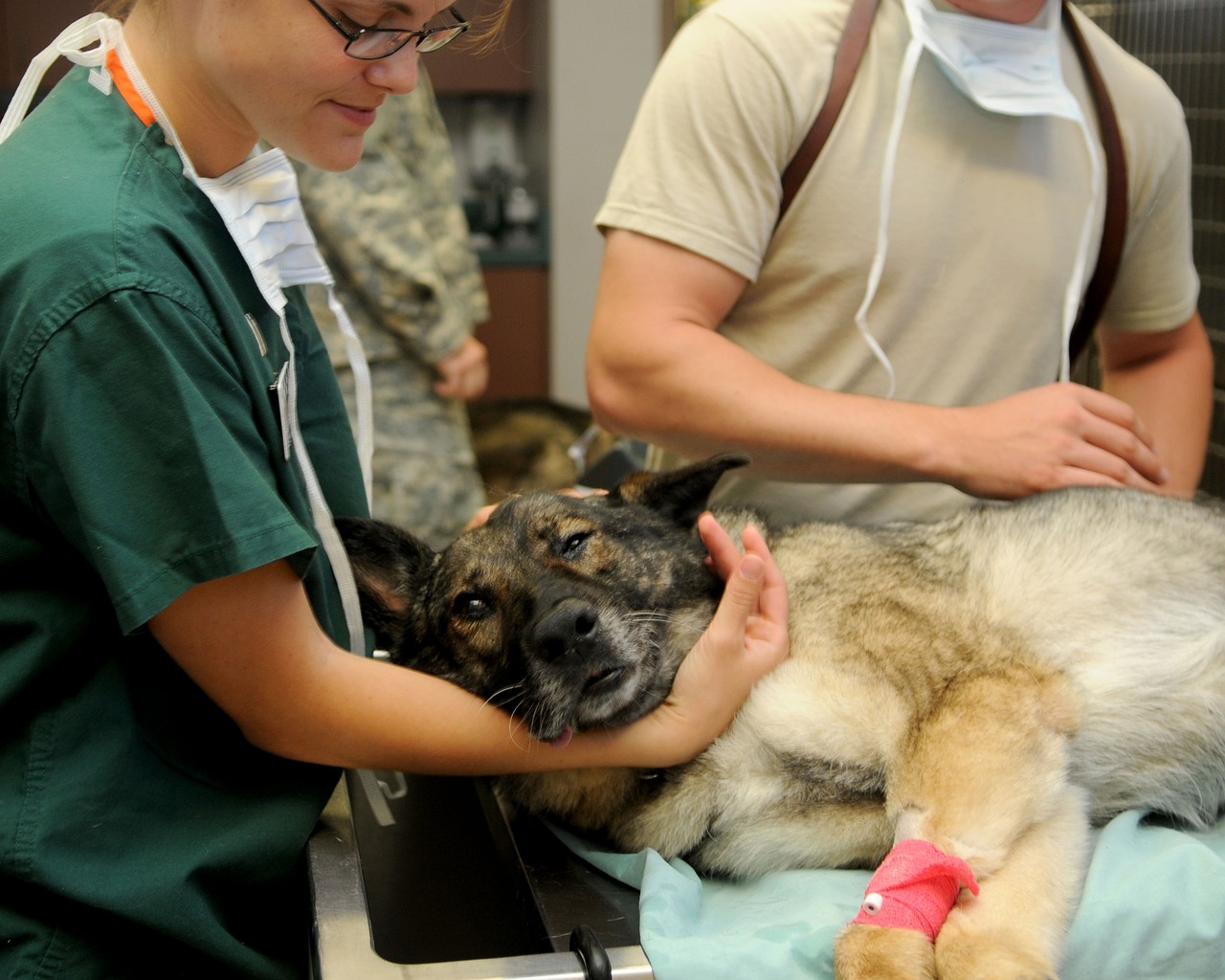In today’s veterinary landscape, pet owners increasingly expect access to fast, reliable urgent care. Not every case requires a full emergency hospital, yet same-day appointments for illness, injury, or post-surgical complications are often beyond the scope of general practices. That’s where urgent care veterinarians come in. These doctors bridge the gap between wellness visits and critical emergencies, managing non-life-threatening but time-sensitive conditions that can’t wait weeks for an appointment. For hospitals, clinics, and veterinary groups, hiring urgent care veterinarians is both a clinical necessity and a business opportunity.
Pulivarthi Group is a specialized veterinary urgent care staffing agency that connects employers with skilled urgent care veterinarians and technicians. Our team delivers flexible staffing models, from locum urgent care veterinarian staffing for sudden surges, to temporary urgent care veterinary staffing for seasonal demand, to long-term permanent hires that expand your hospital’s capacity. By partnering with a dedicated urgent care veterinary recruitment agency, you gain access to pre-vetted candidates who understand urgent care workflows, communicate clearly with clients, and integrate smoothly into your practice. Whether you’re a standalone urgent care facility or a hospital adding same-day services, we provide tailored urgent care veterinary staffing solutions that keep your operations running efficiently, your clients satisfied, and your staff supported.
Why hire an Urgent Care Veterinarian
Hiring an urgent care veterinarian transforms both client experience and hospital efficiency. Unlike traditional general practitioners, urgent care veterinarians are trained to manage same-day cases such as lacerations, allergic reactions, vomiting and diarrhea, lameness, ear infections, and wound management. They free up your regular doctors to focus on scheduled wellness appointments while ensuring urgent patients are seen promptly.
From the client’s perspective, access to urgent care builds loyalty and trust. Families no longer need to choose between long waits at emergency hospitals or delayed care at general practices. Instead, they can count on your hospital for immediate, competent treatment. Clinically, urgent care veterinarians reduce ER overcrowding by managing mid-acuity cases that don’t require full critical care, while still preventing deterioration that could lead to emergencies.
Financially, hiring an urgent care veterinarian helps capture revenue that might otherwise be lost to external clinics. Every walk-in exam, diagnostic panel, or minor procedure retained in-house contributes to both revenue growth and stronger client retention. Most importantly, urgent care veterinarians protect your team. By absorbing unscheduled cases, they prevent burnout among general practitioners and technicians, creating a sustainable balance between wellness, urgent care, and emergencies.
Benefits of hiring an Urgent Care Veterinarian include:
-
Faster access to care for time-sensitive cases.
-
Higher client satisfaction and trust.
-
Reduced ER overflow and referral leakage.
-
Increased hospital revenue from retained cases.
-
Balanced caseloads that protect staff from burnout.
Types of Urgent Care Veterinarian Roles
Urgent care is not one-size-fits-all. Depending on your hospital’s structure, case volume, and service model, different types of urgent care veterinarians may be needed. Some practices hire urgent care generalists, who manage a wide range of mid-acuity cases, including minor trauma, infections, and post-surgical concerns. These roles are ideal for hospitals building a same-day access program.
Others focus on urgent care specialists, veterinarians with advanced training or experience in areas like soft-tissue surgery, dermatology, dentistry, or internal medicine. These doctors help reduce referrals and expand the range of cases handled in urgent care. For flexible coverage, many employers rely on locum urgent care veterinarians, who provide short-term support during staff shortages, holidays, or high-demand weekends.
Hospitals with extended hours or multi-location operations often benefit from urgent care hospitalists, who handle inpatients requiring overnight observation without full ICU-level care. Finally, telehealth urgent care veterinarians are growing in demand. They provide remote triage, follow-ups, and client counseling, helping to reduce in-clinic bottlenecks and ensuring pet owners receive immediate guidance.
Key urgent care veterinarian role types include:
-
Urgent Care Generalist
-
Specialist-Track Urgent Care Veterinarian
-
Relief / Locum Urgent Care Veterinarian
-
Urgent Care Hospitalist
-
Telehealth Urgent Care Veterinarian
Pulivarthi Group Urgent Care Veterinary Staffing Services
At Pulivarthi Group, we know that urgent care staffing requires both speed and precision. Employers cannot afford long delays in filling these roles, as client satisfaction and hospital efficiency depend on timely coverage. That’s why we’ve designed flexible urgent care veterinary staffing solutions to meet hospitals where they are.
For practices building long-term urgent care teams, our permanent urgent care veterinarian staffing ensures stable, full-time placements aligned with your clinical mix, schedule design, and cultural environment. For temporary spikes, such as flu season or regional demand surges, our temporary urgent care veterinarian staffing provides predictable coverage. When flexibility is essential, our locum urgent care veterinarian staffing delivers short-term relief doctors who integrate quickly.
We also offer contingent urgent care veterinarian staffing, where shift-based or project-based models help hospitals manage specific blocks, like weekend coverage or after-hours urgent care. Support staff is just as critical—our urgent care vet technician staffing connects you with experienced technicians who can manage diagnostics, patient monitoring, and client education. For leadership needs, our executive urgent care recruitment service discreetly sources lead urgent care veterinarians or medical directors who can scale and manage new service lines.
Our staffing services include:
-
Permanent Urgent Care Veterinarian Staffing
-
Locum Urgent Care Veterinarian Staffing
-
Contingent Urgent Care Veterinarian Staffing
-
Executive & Senior Urgent Care Recruitment
Where Employers Find Urgent Care Veterinarians
Employers often struggle to identify where to source urgent care veterinarians. General job boards provide visibility but typically attract a mix of candidates, many of whom lack urgent care experience. Veterinary schools and internships can be pipelines for new graduates, but urgent care roles often require independent case management skills that new grads may not yet possess.
Professional associations such as the American Veterinary Medical Association (AVMA) (avma.org) and regional urgent care networks can be valuable for networking, but they don’t always translate into fast hires. This is where a veterinary urgent care recruitment agency like Pulivarthi Group makes a difference. By maintaining a dedicated network of urgent care-trained veterinarians and technicians, we shorten hiring cycles and reduce vacancy risks. Instead of long lists of applicants, we deliver shortlists of pre-vetted candidates aligned with your hospital’s exact needs.
Primary sourcing channels include:
-
Specialized staffing partners (Pulivarthi Group)
-
Veterinary schools and internships
-
Professional networks and associations
-
General job boards
Hiring Challenges and Solutions
Recruiting urgent care veterinarians comes with unique challenges. One major issue is assessing real-world readiness. Unlike GPs, urgent care veterinarians must work independently, making rapid decisions on diagnostics and stabilization. Employers can overcome this by using structured working interviews, reviewing procedure logs, and conducting scenario-based assessments.
Another challenge is schedule alignment. Urgent care often requires evening or weekend coverage, which can limit candidate pools. To address this, employers should clarify expectations upfront, offer shift flexibility, and use contingent or locum staffing when gaps appear. Turnover risk is also high in urgent care due to workload intensity. Mitigation strategies include caseload caps, strong technician support, and predictable schedules.
Finally, the tight talent market means top urgent care veterinarians are in demand. Hospitals that move slowly risk losing candidates to competitors. By streamlining decision cycles and offering market-aligned compensation, employers can stay competitive.
Key hiring challenges include:
-
Measuring urgent care decision-making skills.
-
Aligning on evening and weekend scheduling.
-
Reducing turnover in high-intensity roles.
-
Competing for talent in a limited market.
Qualifications and Licensing Checklist
Urgent care veterinarians must meet all core veterinary qualifications while demonstrating competency in urgent case management. Every candidate should hold a DVM or VMD from an accredited institution and have passed the NAVLE exam. They must also carry an active state veterinary license, with reciprocity confirmed for locum or multi-state work.
Since urgent care often involves prescribing and dispensing controlled substances, DEA registration is required. Hospitals should also verify liability coverage and compliance with OSHA standards for workplace safety. Candidates should demonstrate continuing education (CE) participation in areas like urgent care, pain management, and diagnostic imaging. While board certification is not typically required for urgent care roles, additional training in areas such as dentistry, dermatology, or soft-tissue surgery can significantly enhance case retention.
Qualification checklist includes:
-
DVM/VMD degree and NAVLE passage.
-
Active state licensure.
-
DEA registration.
-
Professional liability insurance.
-
CE in urgent care–relevant areas.
-
OSHA compliance and immunization records.
Sample Urgent Care Veterinarian Job Description
A compelling job description is essential to attract skilled urgent care veterinarians. Unlike general practice roles, urgent care requires flexibility, the ability to work independently, and the confidence to manage cases that fall between wellness and emergencies. Your description should set expectations clearly, covering the scope of work, required qualifications, and the culture of your hospital.
Role Summary
Seeking an Urgent Care Veterinarian to provide same-day, mid-acuity veterinary services for patients requiring immediate attention but not full ER admission. This role includes managing unscheduled cases, collaborating with general practitioners, and ensuring client satisfaction through timely, compassionate care.
Key Responsibilities
-
Diagnose and treat urgent cases such as lacerations, ear infections, vomiting/diarrhea, allergic reactions, and minor traumas.
-
Perform urgent procedures, including wound repairs, abscess drainage, and basic soft-tissue surgeries.
-
Communicate effectively with pet owners regarding diagnosis, treatment plans, costs, and follow-up care.
-
Collaborate with technicians to ensure efficient patient flow.
-
Maintain accurate and timely medical records.
-
Participate in hospital rounds and contribute to quality assurance initiatives.
Qualifications
-
DVM/VMD degree and NAVLE passage.
-
Active state veterinary license and DEA registration.
-
1–2+ years of urgent care or GP experience preferred.
-
Strong diagnostic and communication skills.
For guidance on writing veterinary job descriptions, see the AVMA guidelines.
Sample Interview Questions for Urgent Care Veterinarians
Interviews for urgent care veterinarians must test not only medical knowledge but also decision-making speed, communication, and independence. Unlike ER veterinarians, urgent care doctors manage a high volume of non-critical but important cases. Structured interviews combined with behavioral and clinical scenario questions reveal readiness.
Examples of effective interview questions:
-
Describe your approach to handling a same-day walk-in with vomiting and lethargy. What diagnostics would you prioritize?
-
How do you manage scheduling when multiple urgent cases arrive simultaneously?
-
Tell me about a time you managed a difficult client who disagreed with your treatment recommendation. How did you resolve it?
-
What urgent care procedures are you most confident performing independently?
-
Which CE courses or training sessions have most influenced your urgent care approach in the past year?
-
How do you collaborate with general practitioners and ER veterinarians in a multi-service hospital?
Behavioral prompts should focus on client communication, team collaboration, and resilience. Scenario-based questions help employers evaluate triage instincts and problem-solving approaches. For tips on structuring veterinary interviews, refer to VECCS resources: veccs.org.
When to Hire an Urgent Care Veterinarian
Deciding when to hire an urgent care veterinarian depends on patient demand and operational strain. Many hospitals recognize the need when they experience high rates of walk-ins or when general practitioners become overloaded with unscheduled cases. If wait times for sick visits exceed acceptable limits or if clients are increasingly referred to emergency hospitals for moderate conditions, urgent care coverage is warranted.
Another trigger is staff burnout. If technicians or GPs are regularly staying late to handle urgent cases, turnover risk rises. Financially, referral leakage is another sign—losing mid-level cases to other clinics represents lost revenue and weakens client loyalty. Strategic expansion, such as extending hours or piloting same-day access, also requires urgent care staff to execute effectively. By monitoring these signals, employers can make proactive hiring decisions that protect staff, clients, and hospital growth.
Key indicators for hiring include:
-
Increased client demand for same-day visits.
-
Extended wait times for sick or urgent cases.
-
Staff fatigue and overtime due to walk-ins.
-
Consistent referral leakage of mid-acuity cases.
-
Plans for strategic expansion of urgent care services.
How to Evaluate Urgent Care Veterinarian Skills
Evaluating urgent care veterinarians requires methods beyond standard interviews. Since these doctors often work independently, employers must ensure candidates demonstrate competence, efficiency, and communication skills. A structured working interview is invaluable. Candidates should be observed diagnosing and treating cases such as skin infections, lameness, or gastrointestinal upset.
Requesting procedure portfolios provides insight into past experience with urgent procedures like laceration repair, dental extractions, and abscess drainage. Scenario-based assessments or OSCEs (Objective Structured Clinical Examinations) simulate urgent care cases, testing diagnostic reasoning, treatment prioritization, and client communication.
Equally important is technician feedback. During shadow shifts, gather structured input from support staff about how candidates collaborate, delegate, and communicate. Culture fit assessments, where candidates discuss values, work style, and approach to client education, round out the process.
Evaluation tools include:
-
Structured working interviews with urgent cases.
-
Review of past procedure logs.
-
Simulation or OSCE assessments.
-
Peer and technician feedback.
-
Cultural fit interviews.
For resources on veterinary skills assessment, see the AAVSB guidelines.
Compensation and Rewards for Urgent Care Veterinarians
Urgent care veterinarians often work evenings, weekends, or extended hours, requiring compensation that reflects schedule intensity. Competitive packages generally include a base salary plus production pay, rewarding both stability and productivity. Due to rising demand, urgent care veterinarians often command higher salaries than GPs, though typically lower than ER specialists.
Benefits are equally important. Employers should cover CE allowances, licensure and DEA fees, and provide wellness programs recognizing the stressful nature of urgent care. Sign-on bonuses, relocation assistance, and student loan repayment programs can help attract candidates in competitive markets. Scheduling transparency—posting shifts in advance and avoiding excessive overtime—is a critical part of the overall reward structure.
Typical compensation components include:
-
Base salary plus production-based incentives.
-
Continuing education and CE allowances.
-
Licensure and DEA reimbursement.
-
Health, dental, and wellness benefits.
-
Predictable scheduling and overtime protections.
-
Sign-on bonuses or relocation packages.
For market benchmarks, refer to AVMA’s salary data: avma.org/resources-tools/reports.
SOPs Worth Formalizing in Urgent Care
Urgent care environments must run on consistent protocols to ensure safety, efficiency, and client satisfaction. Standard Operating Procedures (SOPs) create predictability for staff and reduce errors during busy hours. A critical SOP is triage protocols, which guide technicians and veterinarians in prioritizing cases efficiently.
Medication handling is another priority. Urgent care veterinarians frequently prescribe pain medications, antibiotics, and controlled substances, requiring double-check systems, reconciliation logs, and compliance with DEA guidelines (dea.gov). Client communication SOPs are equally important. Establishing timelines for callbacks, follow-ups, and cost discussions ensures consistent client experience.
Finally, infection control protocols—covering isolation procedures, PPE use, and sharps handling—must be formalized to protect staff and patients. Hospitals that implement strong SOPs not only deliver higher-quality care but also reduce staff stress during high-demand situations.
Essential urgent care SOPs include:
-
Triage flowcharts and case prioritization.
-
Controlled substance management protocols.
-
Client communication and callback standards.
-
Infection prevention and PPE guidelines.
-
Same-day charting and record-keeping protocols.
Retention Strategies for Urgent Care Veterinarians
Retaining urgent care veterinarians is as important as hiring them. The unpredictable nature of urgent cases, combined with evening or weekend shifts, often leads to burnout. Employers can combat this by offering predictable scheduling and setting clear caseload caps. Mentorship is another effective retention tool—pairing new urgent care veterinarians with experienced colleagues ensures smoother integration.
Investment in CE and skill development demonstrates long-term commitment. Offering opportunities to specialize in dentistry, dermatology, or soft-tissue surgery helps veterinarians expand their scope and remain engaged. Recognition is also key. Regular feedback sessions, case reviews, and celebrating staff contributions build morale in demanding environments.
Finally, ensuring strong technician support and updated equipment allows urgent care veterinarians to work at the top of their license, reducing frustration and improving efficiency. Employers who implement these strategies benefit from higher retention, better patient outcomes, and more satisfied clients.
Effective retention strategies include:
-
Predictable scheduling and caseload management.
-
Structured mentorship and onboarding.
-
CE support and specialization pathways.
-
Recognition programs and regular feedback.
-
Strong technician support and updated tools.
How Pulivarthi Group Delivers Urgent Care Staffing
Pulivarthi Group specializes in urgent care veterinary staffing solutions designed for speed and precision. We begin with a detailed intake, aligning on your hospital’s case mix, schedule preferences, and cultural environment. From there, we launch targeted sourcing, engaging urgent care veterinarians through active recruitment and professional networks.
Each candidate undergoes rigorous screening for clinical proficiency, communication style, and compliance with licensure and DEA requirements. Instead of sending long lists, we deliver calibrated shortlists with candidates ready to step in. We also coordinate interviews, shadow shifts, and peer feedback sessions.
Once a candidate is selected, we support credentialing, onboarding, and start-date logistics to ensure a smooth transition. Our partnership doesn’t end with placement—we track outcomes, gather feedback, and refine future requisitions. Whether you need locum urgent care veterinarians, temporary coverage, or long-term hires, Pulivarthi Group is the staffing partner that ensures your urgent care service line thrives.
Ready to Hire an Urgent Care Veterinarian?
Demand for urgent care is rising across the veterinary industry. Clients expect same-day access, hospitals face increased caseloads, and staff are stretched thin. Hiring an urgent care veterinarian is no longer optional—it’s essential for delivering timely, compassionate, and sustainable care.
Pulivarthi Group is the trusted urgent care veterinary employment agency for hospitals and clinics nationwide. From temporary urgent care veterinarian staffing to locum placements and permanent hires, we provide pre-vetted candidates ready to improve patient outcomes, enhance client trust, and stabilize your team.
Don’t let urgent cases overwhelm your staff or frustrate your clients. Book a meeting with Pulivarthi Group today and receive a tailored shortlist of candidates prepared to make an immediate impact.














